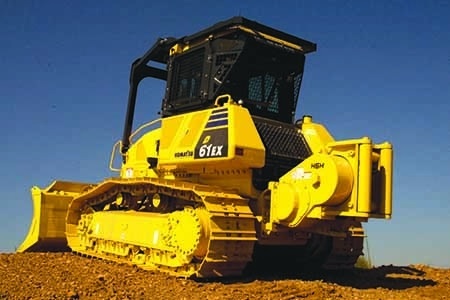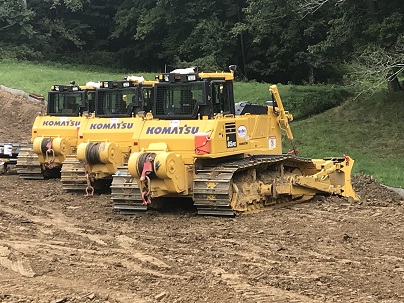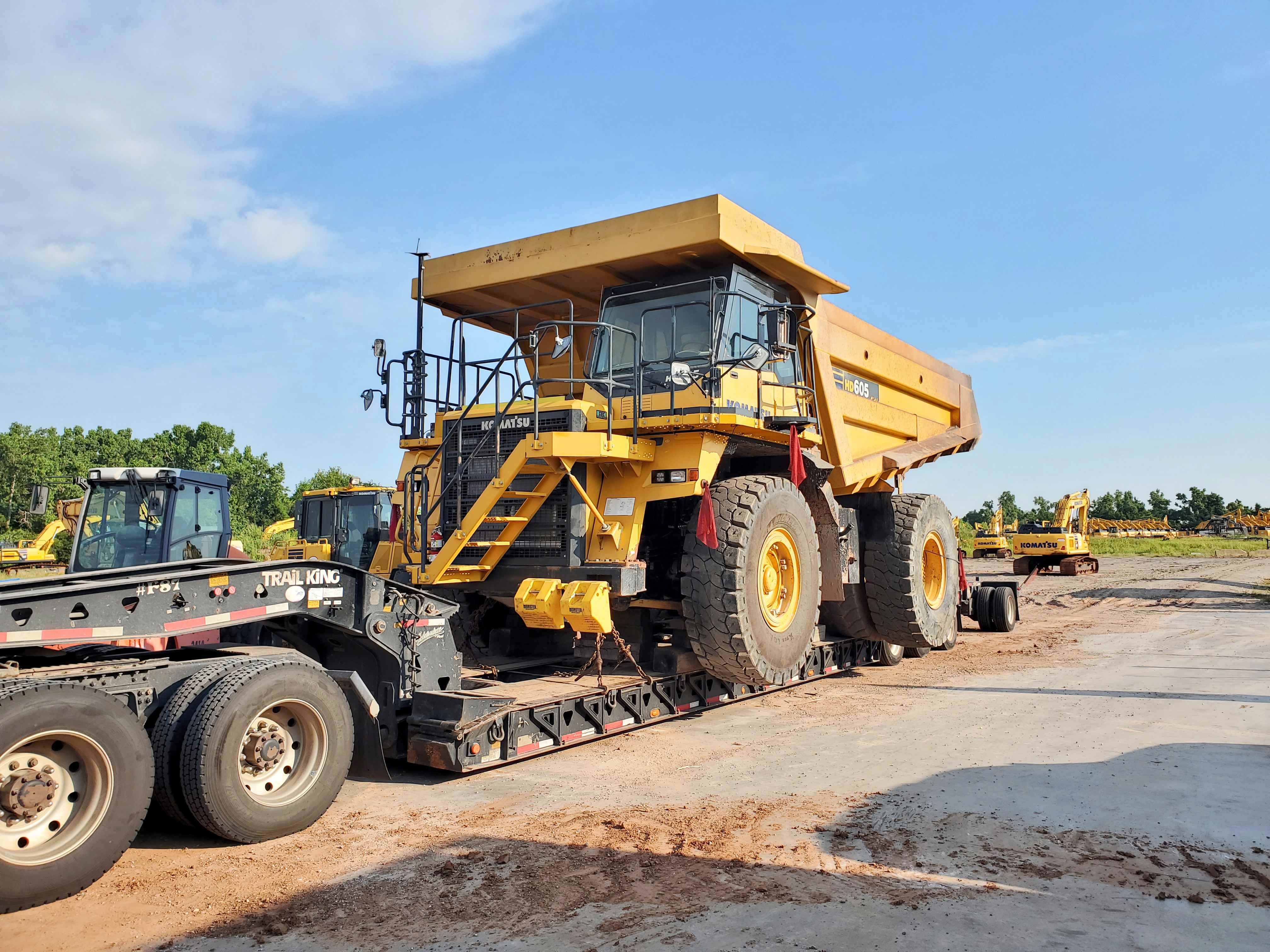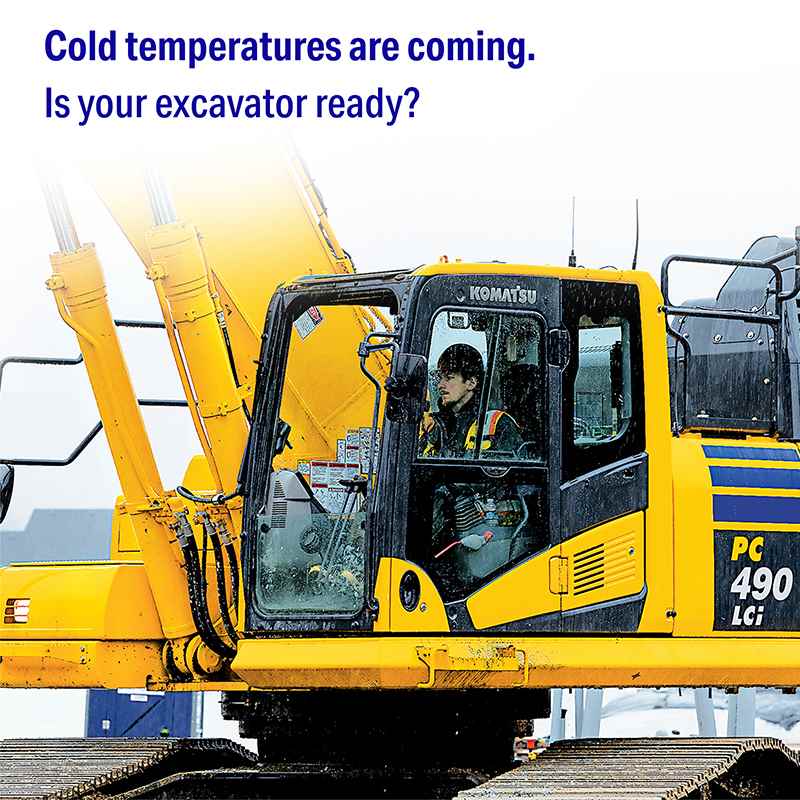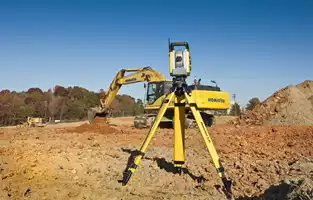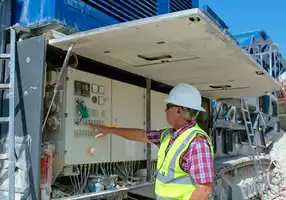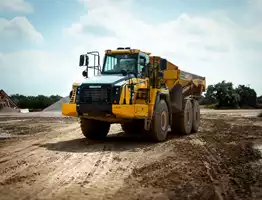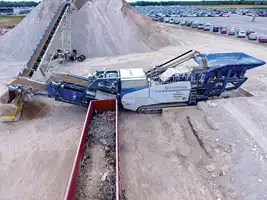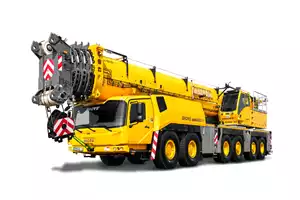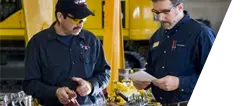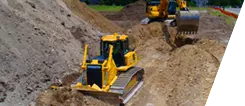Tailor the tension to the work site
Adjust tension on-site—always wait to make track adjustments once you’ve arrived on the job. Mud and other materials can increase tension, and cold weather can tighten tracks, loosening tension. Waiting to make adjustments on-site saves time and prevents machine damage.
Regularly Scheduled Inspections
Komatsu recommends regularly scheduled inspections for all brands and all types of track equipment. During our inspections, we routinely discuss proper track tension and cleaning requirements with your staff to maximize the life of your equipment’s track system. We identify operational and maintenance concerns that could reduce the life of any components and recommend an appropriate preventive maintenance program.
Adjusting Track Tension
Track tension is maintained by a track adjuster that is situated behind the front idler. Adjustments can be made by pumping or draining grease through a fitting on the track adjuster. Large track sag indicates that the track is loose; small track sag indicates that the track is tight. A small adjustment in track sag—from 1" to 0.5"—has a huge impact on tension and increases tension by about 3,000 pounds.
Operating Conditions
Remember to adjust track tension to the operating conditions. As packing conditions increase, the adjusted track tension should decrease.
When the track chain is too tight, there is increased wear on all undercarriage components, especially pins, bushings, links, and sprockets. Large frictional forces burden the drive train, causing mechanical loss and reduced drawbar pull. Friction between moving components causes temperatures to climb—sometimes hot enough to melt seals.
When the track chain is too loose, the track chain swings side to side and the machine weaves violently, causing increased wear on all components involved in track guidance—flanges, roller guards, link side faces, and sprocket teeth. Upper waviness causes the track chain to whip, resulting in excessive wear on the idler and carrier roller. High speeds will increase the damage. In reverse, the sprocket may climb or skip bushings—causing loud, popping impacts—and you could see excessive noise and shaking.
Alignment
Misalignment causes unnecessary wear to all undercarriage components. The most common type is idler shift, which can be fixed by adjusting idler shims. The quickest way to detect an alignment problem is to look for anything shiny that should not normally be shiny. Indicators that the track frame alignment system needs adjusting are: inside of track links are scuffed and shiny, roller and front idler flanges show wear, and sides of sprockets are coming in contact with the inside of the track links.
Operating Your Machine Properly
Use the slowest operating speed that will get the job done in a timely fashion; wear rate increases with speed. When working in high impact conditions, it is critical to use the lowest gears available whenever possible. Minimize reverse travel, as it causes much more wear to bushings and sprockets than forward travel, especially in high gear or when climbing uphill. Spinning the tracks is ineffective and causes unnecessary wear on the undercarriage by inflicting action on the grousers. Also, avoid favoring one side. If it is impossible to use symmetrical operating patterns, swap left and right rollers periodically.
If you have questions about your machine’s undercarriage or want to have yours examined, you can schedule a free walk-around inspection with a Kirby-Smith Product Support Professional. More Details Here.

